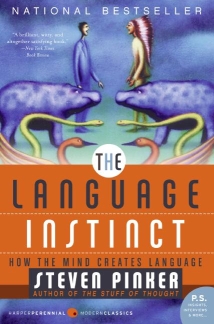- HOME
- INTRO TO THE FORUM
- BADLY WRITTEN, BADLY SPOKEN
- GETTING
TO KNOW ENGLISH - PREPARING FOR ENGLISH PROFICIENCY TESTS
- GOING DEEPER INTO ENGLISH
- YOU ASKED ME THIS QUESTION
- EDUCATION AND TEACHING FORUM
- ADVICE AND DISSENT
- MY MEDIA ENGLISH WATCH
- STUDENTS' SOUNDING BOARD
- LANGUAGE HUMOR AT ITS FINEST
- THE LOUNGE
- NOTABLE WORKS BY OUR VERY OWN
- ESSAYS BY JOSE CARILLO
- Which Words Pack the Most Wallop
- No Earthly Reason Why The Clergy Should Be Bad In English Grammar
- Here’s Hoping For Better English In This Year’s Graduation Rites
- Looking Back to Easter Sunday’s Earthly and Celestial Foundations
- Our Need For Thinking National Leaders With The Gift Of Language
- The Heavy Price of Misplacing One’s Trust and Confidence
- ABOUT JOSE CARILLO
- READINGS ABOUT LANGUAGE
- TIME OUT FROM ENGLISH GRAMMAR
- NEWS AND COMMENTARY
- BOOKSHOP
- ARCHIVES
READINGS IN LANGUAGE
This new section features links to interesting, instructive, or thought-provoking readings about the English language. The selections could be anywhere from light and humorous to serious and scholarly, and they range widely from the reading, writing, listening, and speaking disciplines to the teaching and learning of English.
How “socializing” has evolved as new buzzword in the Web 2.0 era
In his language column for the March 29, 2010 issue of The New York Times, Ben Zimmer talks about a new catchphrase in meetings in the United States: “Let me socialize that.” That catchphrase is the new jargon for “I’ll discuss this with my colleagues and circle back to you,” and Zimmer traces its roots way back to 1998. That was when the phrase “Let’s socialize the idea” was used by websites to promote a game in which participants would fill bingo cards full of corporate-speak, then check off the selected words when they were used during business meetings. Then by 2008 onwards, Zimmer recalls, “socialize” become a dirty word in politics when it got tarred by the infamous round of corporate bailouts by the US government, with taxpaying citizens complaining about paying for “socialized losses” arising from “privatized profits.” Today, Zimmer says, that socializing idea is now centered on social media applications popular among the digerati, particularly social networking sites like MySpace, Facebook, Twitter, and LinkedIn as well as social bookmarking and tagging sites like Delicious, StumbleUpon, Digg, and Reddit. “If the future of words like ‘social’ and ‘socialize’ belongs in the hands of techno-utopians, then that could go a long way in cleansing those words of any nasty political connotations,” he says.
Read Ben Zimmer’s “Social” in The New York Times now!
RECOMMENDED READING:
Steven Pinker’s The Language Instinct: How the Mind Creates Language (HarperCollins, 544 pages) is the now classic but still controversial book that explains how language works, how children learn it, how it changes, how the brain computes it, and how it evolved. Pinker says that language is a human instinct wired into our brains by evolution. Deftly using humor and wordplay, he argues that an “innate grammatical machinery of the brain” exists, allowing children to “reinvent” language on their own. He then takes issue with the viewpoints of language mavens like William Safire and Richard Lederer, whom he accuses of rigidity and of grossly underestimating the average person’s language skills. First published in 1994, Pinker’s thought-provoking and highly debated book had since received the William James Book Prize from the American Psychological Association and the Public Interest Award from the Linguistics Society of America.

Read the first chapter of Steven Pinker’s The Language Instinct at the HarperCollins website now!
Read Michael Coe’s 1994 review of Steven Pinker's The Language Instinct now!
Click to read comments or post a comment
View the complete list of postings in this section
(requires registration to post)






